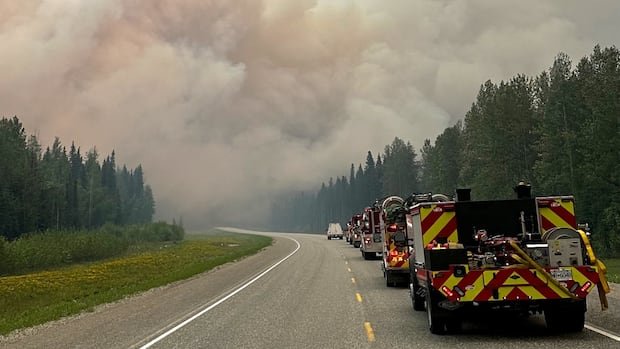This year, Canada is experiencing the second-most severe wildfire season in its history, following the data from the Canadian Interagency Forest Fire Centre (CIFFC) and Natural Resources Canada. Experts caution that this trend is likely to continue as climate change progresses.
As wildfires and deteriorating air quality become more prevalent in Canada, CBC News enlisted the expertise of meteorologist and scientist Johanna Wagstaffe, along with Laura Lynch, host of CBC’s “What On Earth,” to address questions from the public.
The lengthier, hotter, and drier seasons globally, particularly in Canada, are leading to more intense wildfire seasons. The World Weather Attribution Group now swiftly assesses weather event data to determine the impact of climate change on wildfires, indicating a concerning trend of increasingly severe seasons becoming more frequent.
Monitoring air quality is crucial, and Canada primarily utilizes the Air Quality Health Index (AQHI) to provide comprehensive assessments. This system analyzes various pollutants such as fine particulate matter, harmful chemicals, and low-level ozone to generate an overall index, with a score above 10 signifying a high health risk.
Wildfire smoke poses significant health risks, with research indicating that chronic exposure led to an estimated 82,100 premature deaths globally, including 8,300 in Canada. The smoke can travel long distances, impacting regions far from the source, highlighting the far-reaching consequences of wildfires on public health.
Determining the exact number of wildfires caused by arson is challenging as such incidents are often classified under human-caused fires. While human-caused fires are nearly equal to lightning-caused fires in Canada, the proportion varies by province. Efforts to prevent human-caused fires are essential, given their potential for devastating consequences.
The recovery of forests post-wildfires varies based on factors such as severity and forest type. While some forests regenerate quickly, others may take decades or even transform into different ecosystems. Wildfires play a role in rejuvenating soil fertility, aiding in the recovery of certain species.
Smoke from wildfires can obstruct sunlight, affecting the efficiency of solar panels by reducing energy capture. Regular cleaning of panels during or after wildfire seasons is crucial to maintain optimal performance. As climate change evolves, exploring more smoke-resistant panel designs may become necessary.
Forest fires significantly contribute to air pollution, making Canada one of the top emitters globally. This exacerbates air quality issues not just in Canada but also on a global scale, creating challenges in controlling wildfires and combating climate change.
In conclusion, the escalating impact of wildfires on climate change and air quality underscores the urgent need for proactive measures to mitigate these effects and adapt to the changing environmental landscape.

